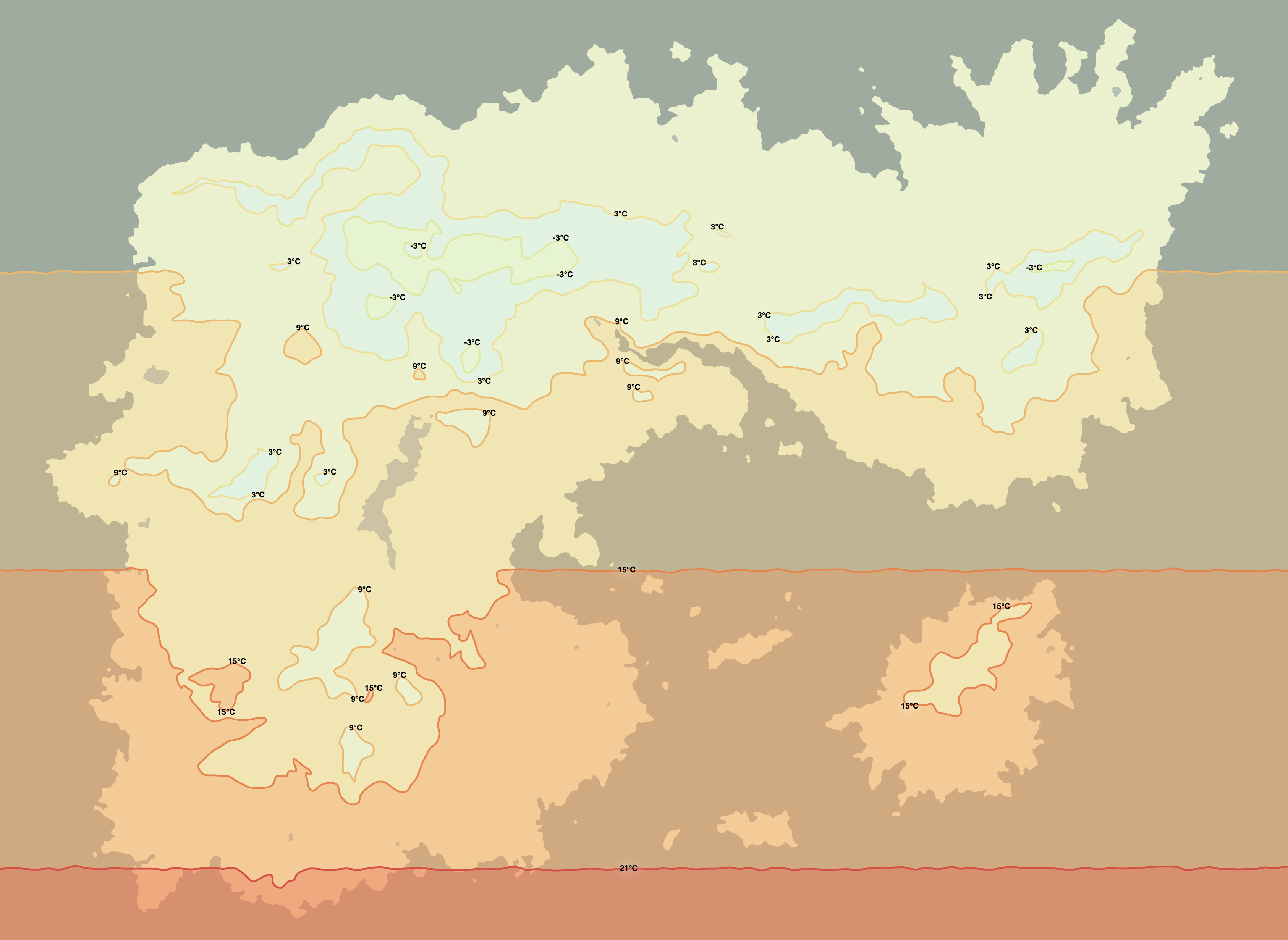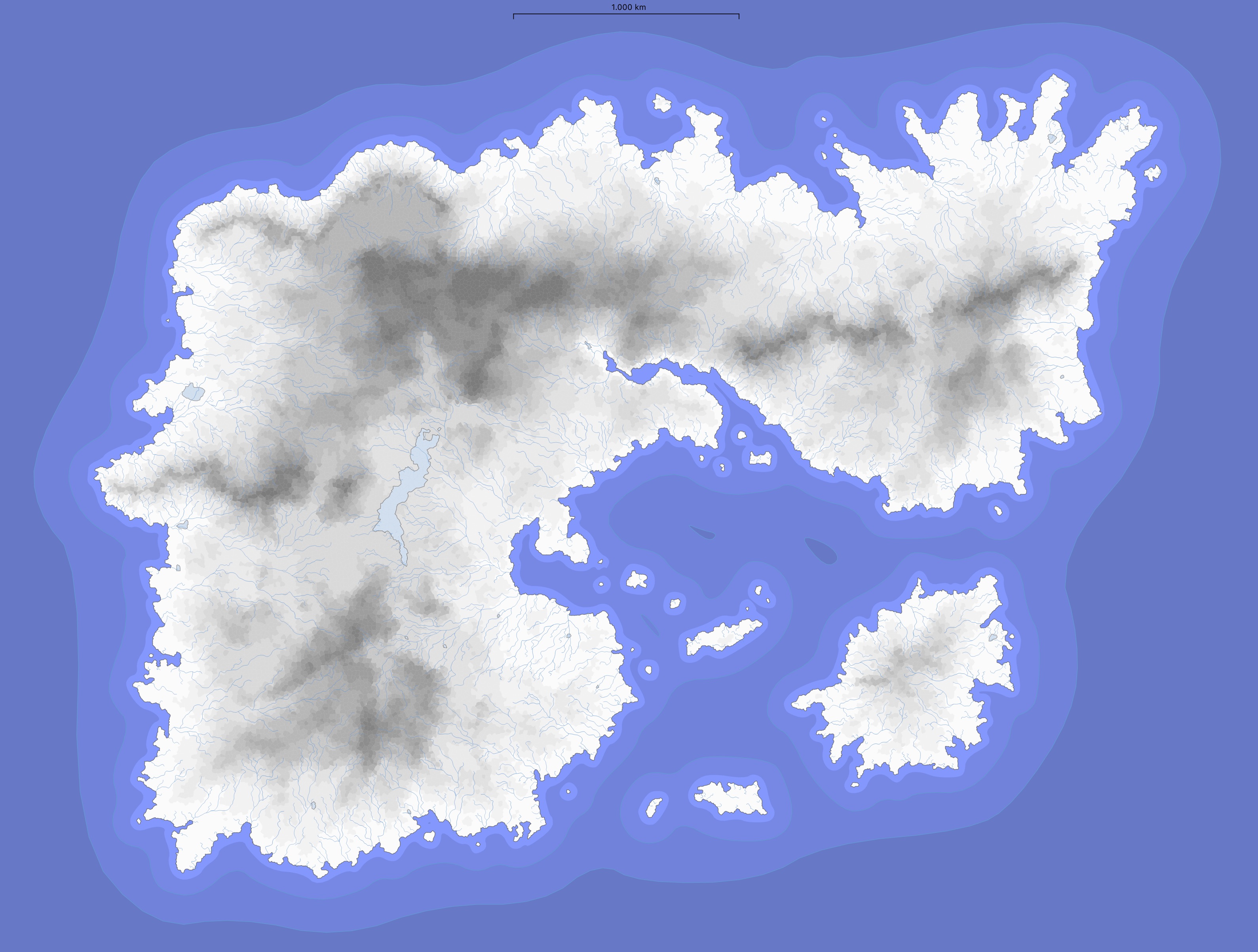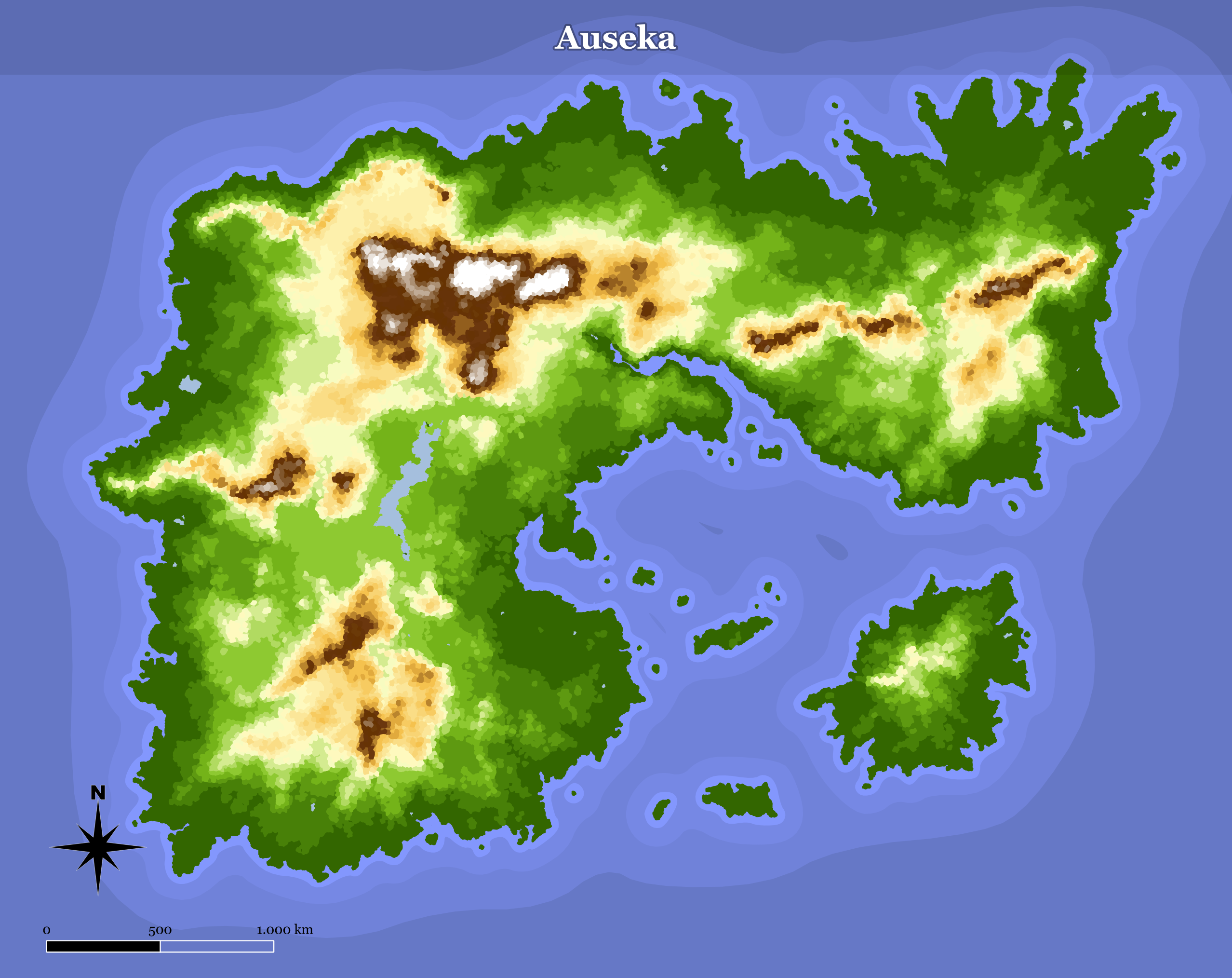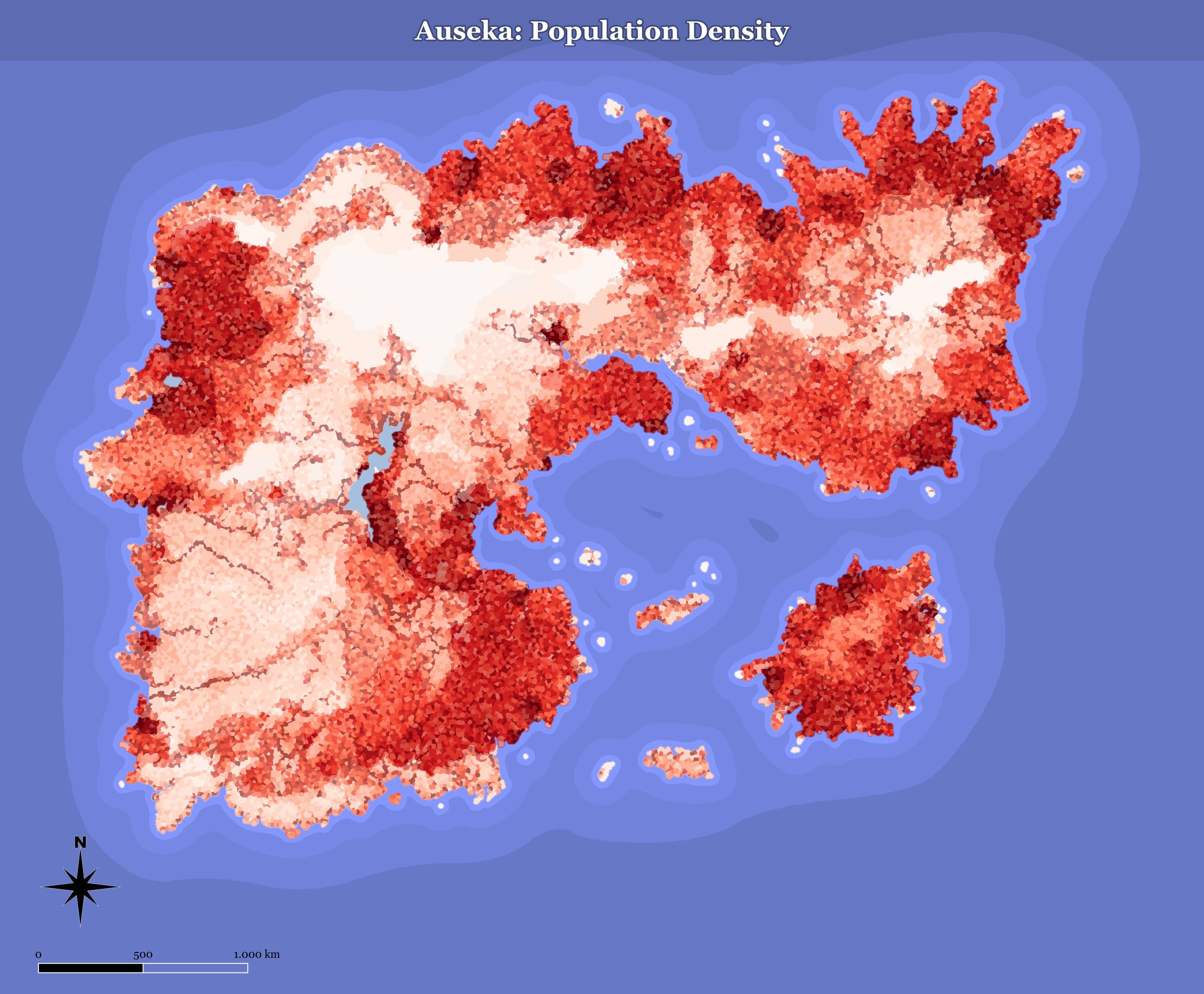Geographic Maps: Difference between revisions
From Dragon Eye Atlas
No edit summary |
No edit summary |
||
| (2 intermediate revisions by the same user not shown) | |||
| Line 11: | Line 11: | ||
[[File:Heightmap.jpg|center]] | [[File:Heightmap.jpg|center]] | ||
Highlands and mountain ranges of [[Auseka]]. | Highlands and mountain ranges of [[Auseka]]. | ||
== Geographic Map == | |||
[[File:Geography map.png|center|geographic map]] | |||
== Population Density Map == | |||
[[File:Pop density.jpg|center|population density map]] | |||
(darker reds indicate higher population) | |||
Latest revision as of 21:47, 1 March 2021
Average Yearly Temperatures

Shown above are the average yearly temperatures in Auseka.
Areas above 21°C are tropical and warm throughout the year. In the 15°C region is a subtropical climate. The 9°C regions are the warmer temperate zone, mediteranean climate (or southern USA). The 3°C is the colder temperate zone, northern Europe or northern USA climate with warm summers and cold winters. Snowfall is common there, while it does happen in the 9°C warmer zone where some winters are cold and some are warm. There is no polar climate zone in Auseka, though many of the higher altitude regions are in the -3°C average temperature zone and are cold through the year with long and cold winters. A few of the very high mountains are frozen throughout the year with average temperaturs -9°C as below, but these places are also barren, largely above the tree line and cold due to altitude, not climate zone.
Heightmap

Highlands and mountain ranges of Auseka.
Geographic Map

Population Density Map

(darker reds indicate higher population)